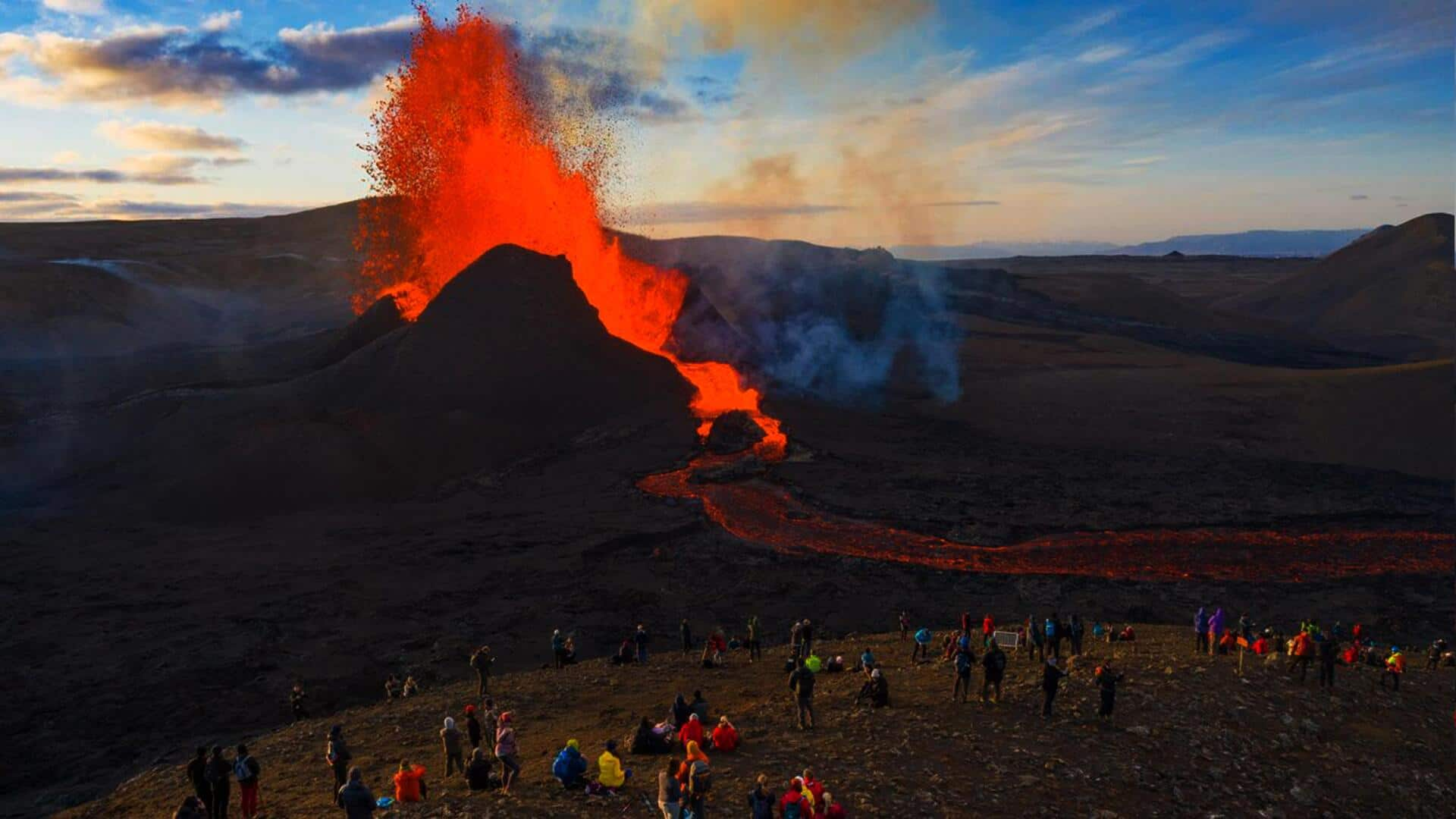
Iceland declares state of emergency after earthquakes threaten volcanic eruption
What's the story
Authorities in Iceland have announced a state of emergency after a series of powerful earthquakes threatened a volcanic eruption in the region. As per the Department of Civil Protection and Emergency Management (DCPEM), the decision was made "due to the intense earthquake (activity) at Sundhnjukagigar, north of Grindavik." The Icelandic government is monitoring the situation with the Icelandic Meteorological Office (IMO) and the DCPEM.
Twitter Post
Icelandic Ministry for Foreign Affairs's full release
The Government of Iceland continues to monitor the situation in close collaboration with the Department of Civil Protection and Emergency Management and the Icelandic Meteorological Office.
— MFA Iceland 🇮🇸 (@MFAIceland) November 11, 2023
For updated information please visit: https://t.co/SX6fw8RLNe
What Next?
Over 20,000 tremors recorded since October
In recent weeks, thousands of tremors have been recorded around the Fagradalsfjall volcano, mainly in Iceland's Reykjanes Peninsula, which was dormant for 800 years before an eruption in 2021. On Thursday, the increased tectonic activity in the area prompted the closure of the iconic Blue Lagoon tourist spot, too. Since late October, over 20,000 tremors have been recorded in the country's southwestern parts.
Details
Iceland home to 33 active volcanic systems
In an official release on Friday, the IMO said that a volcanic eruption could happen "in several days" rather than "hours." "If a fissure were to appear where the seismic activity is at its highest now, lava would flow to the southeast and to the west, but not towards Grindavik," it added. Iceland has a total of 33 active volcanic systems, the highest in Europe.
Insights
Know about Friday's quakes that rocked southern Iceland
Two strong earthquakes were felt on Friday evening as far away as the Icelandic capital, Reykjavik, and along the country's southern coast. The strongest quake, measuring 5.2 magnitude, was recorded north of Grindavik, according to preliminary figures from the IMO. Furthermore, Iceland's meteorological authority reported nearly 800 earthquakes between midnight and 2:00pm (local time) on Friday.
Know more
Why Iceland experiences regular seismic activities
Iceland is located on a tectonic plate boundary that frequently splits apart, pushing Eurasia and North America away from one another along the line of the Mid-Atlantic Ridge. Since 2021, there has been a volcanic eruption almost every 12 months in Iceland, and the latest one happened in July this year in the south of the country's capital city. Volcanic eruptions take place when magma, which is lighter than the surrounding solid rock, ascends from deep within Earth.